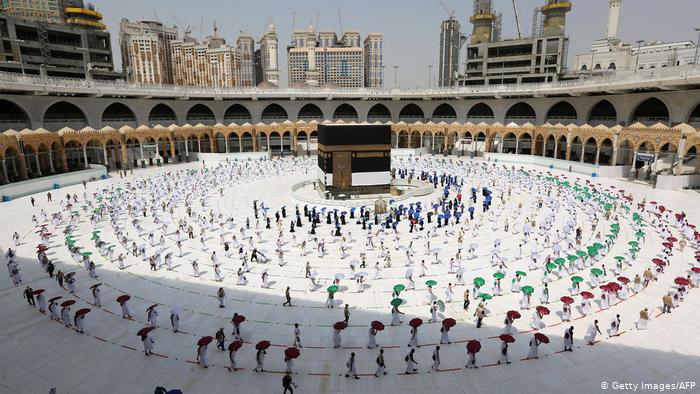
The Deputy Director, Information and Publication of NAHCON, Mousa Ubandawaki, made the clarification in a statement on Saturday in Abuja.
He said for over two months, the commission had been working to ensure that the fare did not spiral out of the reach of average Nigerian Muslims, especially against the backdrop of the global economic crisis, bourgeoning inflation, and the depreciation of the naira against the dollar in the forex market.
He said that since the announcement of the final hajj fare for Nigerian pilgrims by the NAHCON boss, Zikrullah Hassan, a varied limited number of people had been asking questions about why the pilgrims from the states of the federation would have to pay different fares from the same country.
Thank goodness that the commission was able to keep the price below N3m against all these odds.
”At the inception of the screening of airlines for this year’s Hajj, the commission, through the Nigeria Civil Aviation Authority, was made aware that tickets for air travel, including the chartered flight that Hajj carriers charged, was influenced by the nautical mile the aircraft covers.
”It is the reason why the air ticket for Maiduguri and Yola departure is much lower than all the other northern states as well as southern Nigeria due to its proximity to Saudi Arabia.”
He said that while pilgrims from those two airports spent less than four hours to Saudi Arabia, those from other regions of the northern and southern states spent five or more hours to the same destination.
According to him, the other reason is the price and location of accommodation in Makkah.
He said it was a known fact that some states’ pilgrims welfare boards, with their large contingent, needed a more expansive house or building to accommodate some of their pilgrims while some others may not need as much.
The deputy director stated that in sourcing for accommodation, the various states subscribed to accommodation that suited their needs and capacity.
He said under the NAHCON Act and policy as a regulator, its job was to ensure that the states complied with the benchmark and the standard of accommodation was commensurate with the fare charged.
Ubandawaki also said the other reason why the fare was different from state to state had to do with the local charges by the different state pilgrims such as administrative charges, uniforms and registration fees.
Ubandawaki, who acknowledged the sacrifice made by prospective pilgrims to fulfill the religious obligation, promised that the commission would continue to do everything to ensure that pilgrims got value for money.
NAN





